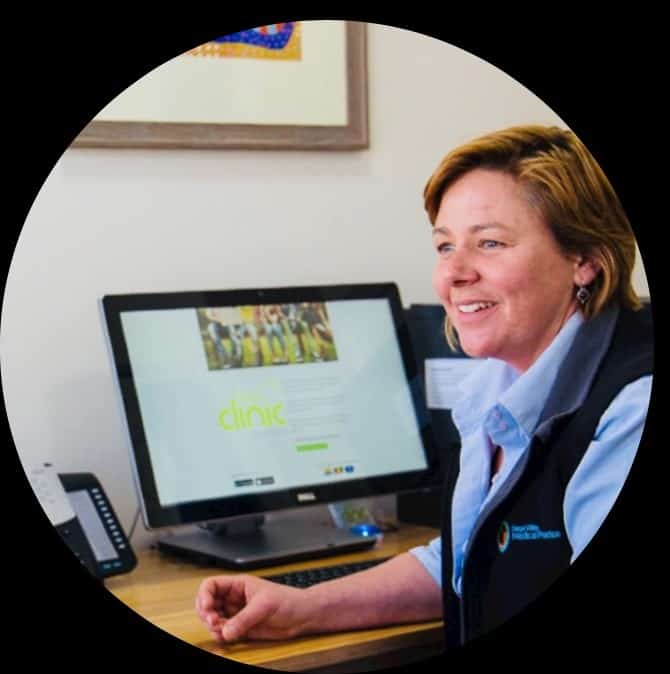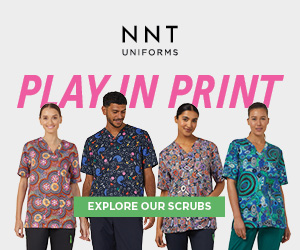Nurses working in nurse-led models of care undertake comprehensive assessment, provide timely person-centred care, opportunistic education and support, continuity of care and link patients to other health professionals and services.
Underpinned by advanced practice nursing care, innovative and cost-effective nurse-led models of care aim to improve access to healthcare and give people choice while also enhancing the patient’s experience.
Over four weeks ANMJ is delving into what nurse led-models of care are while featuring different models across Australia in a four part series.
This week we look at Bega Valley’s nurse-led Teen Clinic
Bega Valley’s nurse-led Teen Clinic is a free drop-in service that gives local teenagers the opportunity to talk about a broad range of health issues.
It was created in 2015 following a spate of youth suicides in the rural region.
“We were literally sitting around the staff room asking ‘why aren’t these kids coming in and getting help before it is too late?” recalls Teen Clinic nurse Meghan Campbell.
General practices can be scary places for teenagers with health concerns, Meghan says.
To break down barriers, the Bega Valley Medical Practice established the confidential and non-judgmental Teen Clinic, which runs on Tuesday and Thursday afternoons between 1-5pm.
A soft entry point for teenagers learning to navigate the health system, Teen Clinic covers medical and non-medical issues including general healthcare, contraception advice, mental health, bullying, STI screening, relationship issues and homelessness.
Without start-up funding, Bega GP and Practice Principal Duncan MacKinnon became a key driver of integrating the clinic into the practice.
The early intervention nurse-led model of care gives teens access to registered nurses, who act as facilitators to GPs and other health professionals.
All Teen Clinic nurses, who work autonomously in triaging, educating and screening this often vulnerable demographic, undertake additional education in areas like mental health and suicide prevention, and sexual and reproductive health.
Since launching, Meghan says Teen Clinic struck a chord because nurses, arguably less intimidating to talk to than doctors, have more time to provide person-centred care which empowers youth to take control of their healthcare.
“Often we get young people come in and they don’t even know why they’re here or can’t express it so we can sit and chat about all sorts of other things until the real issues start to emerge.
“Before we started this we thought ‘oh we’re not cool enough, we’re daggy’. Actually, they don’t want someone to be cool. They just want someone who’s real, authentic, open and non-judgmental that includes them in their healthcare.”
Building acceptance of Teen Clinic involved forging relationships with the community and particularly schools and teachers, who often refer students.
Sexual health and mental health remain two of the biggest reasons teenagers visit.
“It’s about opening up options and normalising accessing healthcare,” Meghan explains.
“We get the whole gamut of health issues. Lots of it is sexual health and contraception, but often it’s just opportunistic education around that too.
“Someone might come in with the flu or cold and we’ll say ‘by the way have you had an STI screen recently?’ I love that the teenagers will come in for anything. They’ll come in for an ingrown toenail or they’ll come in and say ‘look I’m not getting along with Mum, I want to move out of home’.
Meghan believes Teen Clinic has made a profound impact.

“It’s just fantastic to sit with a young person that’s come in, nervous and scared about why they’re there, and be able to put them at ease, maybe solve something for them on the day, make a plan with them about where they’re going next, maybe book a return visit, and just see the relief on their faces. That’s the stuff data will never capture.”
Two years after launching, Teen Clinic was awarded a $20,000 grant from the Australian Primary Healthcare Nurses Association (APNA).
More recently, it received Primary Health Networks Innovation Funding, enabling it to support nearby general practices to establish clinics in Eden, Merimbula, Narooma and Kiama.
But ongoing funding remains problematic, with Teen Clinic surviving on support from general practice principals who recognise its value.
“It’s a real shame,” Meghan says of the uncertainty.
“It’s a simple solution that builds capacity into existing services and relative to other health dollars, it’s a minute amount of money that would keep these going.
“Often these teenagers don’t actually need medical care, they need nurse-led care.”








